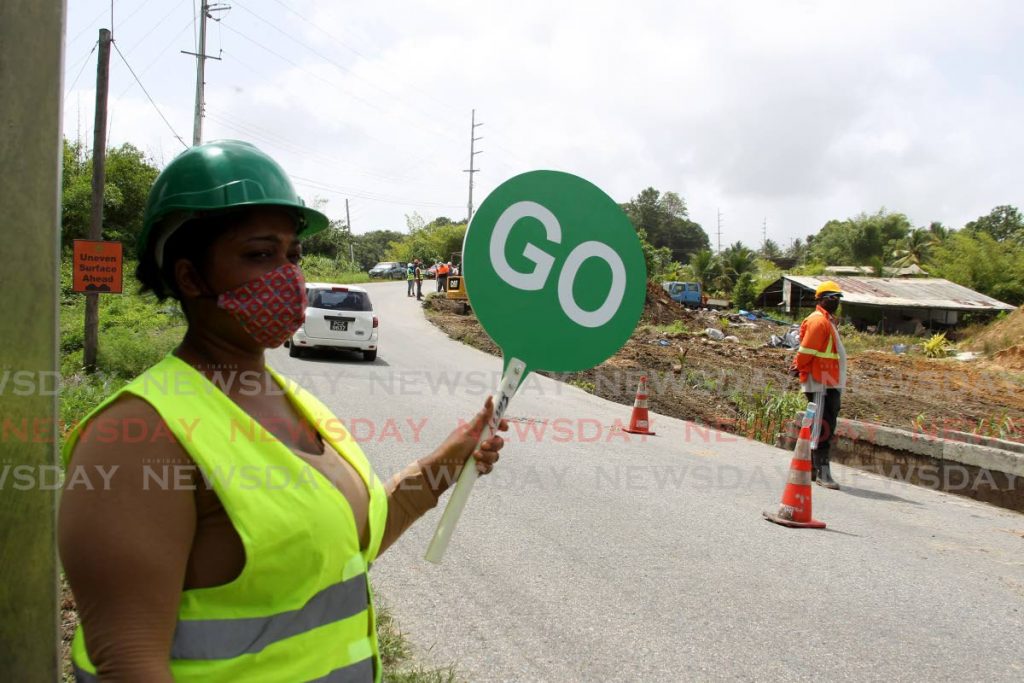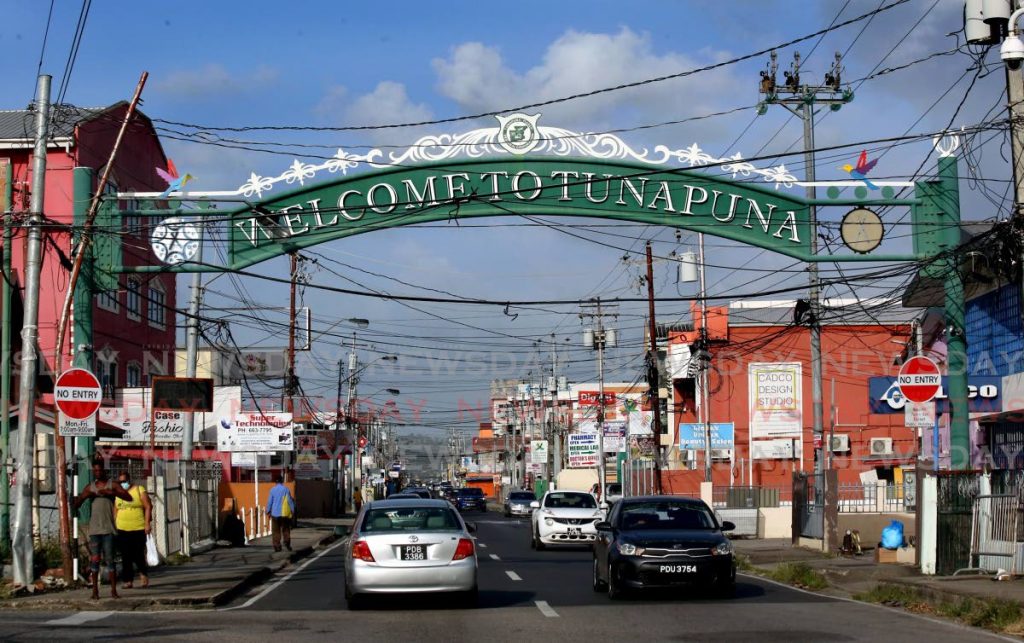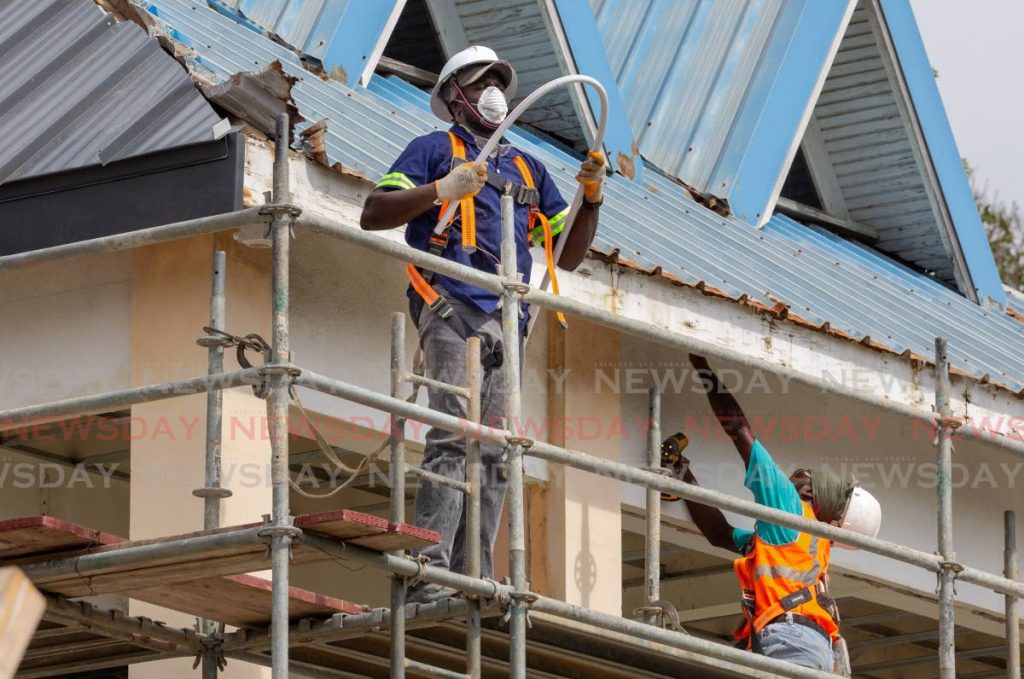Data key to Trinidad and Tobago's economic growth

It took a pandemic for Trinidad and Tobago to realise the disparity in the number of children who needed to access online classes and children without access to digital devices.
When covid19 hit and stay-at-home measures made it necessary for the education system to pivot to online classes, Government discovered that while there was a digital data device in most homes, in many there was more than one child who would need to use it.
That gap has since been reduced through corporate donations of 23,000 devices and the distribution of about 14,000 laptops – out of an order by the State for 20,000 – for 65,000 students.
How did the Government, which made promises in its last budget to develop data-gathering systems and promote digital transformation, not know there was a disparity between the number of devices available in a home and the number of children who need to use them?
The answer is there was no available data on digital use among families.
Data is one of the key ingredients in decision-making, whether in the home, in a business, or on a national scale. Without up-to-date data many decisions and policies would be made by guess.
The Central Statistical Office (CSO) has been a source of information on the country’s GDP, population, rate of inflation, employment and other aspects of the economy. Its information was once readily accessible to the public.
But in recent years, it became under-resourced, and its building on Independence Square, Port of Spain fell into disrepair and was bulldozed. The office was relocated to Frederick Street. Several bodies have since complained about lags in data which does not then paint an accurate picture of the country.
With a drive for digital transformation, through a dedicated ministry, a proper database on the social and economic sectors of TT is imperative.

While the CSO continues to provide information for public and economic decisions, stakeholders said more must be done, starting with the passage of the National Statistical Institute (NSI) Bill, which has been has been before a parliamentary committee since 2019.
The devil’s in the data
The bill, laid in Parliament in 2018, is meant to replace the Statistics Act, which currently provides for the taking of censuses and the collection, analysis and publication of statistical information.
The bill would give statisticians more autonomy to disseminate or authorise the dissemination of official statistics, along with conducting censuses and surveys, collaborating with individuals, firms and other stakeholders to develop a national statistical system.
State agencies such as the Board of Inland Revenue and the National Insurance Board, along with other public bodies and private enterprises, would have to provide relevant data to the institute.
A joint select committee has provided two interim reports on the bill. The Ministry of Planning and Development, line ministry of the CSO, told Business Day it is doing preparatory work to ensure a smooth transition from the CSO to the NSI.
“The legislative framework for the National Statistical Institute of TT (NSITT) is currently receiving the attention of Government. As with starting any new organisation, especially one as vital as a statistical organisation, there will be fine details that may need more attention,” the ministry said.
The ministry said the aim is not just to have a new organisation but one which builds on the work currently done by the CSO. One of the newer tools would be the development of a national statistical system to improve the capacity of the NSI and modernise how data is collected and used by public and private bodies.
Currently there are few survey instruments that the CSO uses to gather information. It conducts general home surveys and establishment surveys. For establishments, forms are filled out and compiled and home surveys are done face-to-face.
Andre Blanchard, acting director of statistics at the CSO, told Business Day the organisation has been working on digitising operations.
"Within recent times we have been concentrating on trying to develop the computer systems that would use a computer-assisted personal interview system which utilises a tablet, mobile phone or computer to record answers.
“We used it for smaller surveys and we now want to use it in regular data collection,” he said. “This gives us the potential for real-time updating of data. It would also assist in getting information to us more efficiently and would assist with cost reduction, where you would not need as much resources to conduct surveys.”

The organisation is also looking into web-assisted interviewing where respondents could go onto a website to answer surveys.
The CSO is also a part of a national survey being done with Caribbean Industrial Research Institute (Cariri) and the Telecommunications Authority of Trinidad and Tobago (TATT) on digital inclusion in TT. Acting TATT CEO Cynthia Reddock-Downes told Business Day the survey began started in March, but because of lockdown restrictions, it was paused and resumed this month. Downes said the survey may need two months to complete. The information, after it is processed, would be available to the public by January.
“The inclusion survey would solidify the information on the extent of the information gap and the affordability gap, the survey included questions about cost, services they could access, and what level of service provision they would have access to because some levels of service may not be able to support multiple people being online at the same time.”
For several bodies, the CSO’s current database and methods of gathering and disseminating information are outdated. Economists, chamber heads and researchers have had issues with access to information and problems with consistency in details.
TT Chamber of Industry and Commerce CEO Gabriel Faria said while the change in strategies and even rebranding of the CSO is welcome, it should not be aesthetic alone. The organisation, he said, would need professional, independent individuals to access and compile source data and ensure that it is up-to-date and accurate, otherwise it would be like “putting lipstick on a pig.”
“For years the chamber, along with other organisations, has been complaining about the porosity of data, and unavailability of data. This relates to everything from employment statistics to education to import statistics. For example, when we try to get details on what has been imported the level of data is just not there.”
“Yes, we need to have this data. It is crucial for the country, for business and government. But unless we isolate these initiatives and put a professional, independent body to deal with it you would be making cosmetic or superficial changes to really disguise fundamental failings.”
Business Day checked the CSO website. Information on several topics was available, including the unemployment rates, GDP rates, visitor expenditure, imports and exports and even the number of chickens sold last year. Data on imports and exports is up to 2020. Recent information on monthly imports is up to April.

But much of the information is dated. For example, the unemployment rate, set by the CSO at 4.5 per cent, was last updated in 2019, before the covid19 pandemic struck, forcing the country into two lockdowns, causing several businesses in all sectors to close, as well as leading to several price shocks in key commodities like oil, gas and wheat.
The information on births and deaths is three years behind.
“When I read the statistics and it says unemployment is (about) five per cent, it doesn’t take too much to realise that is not correct,” Faria said. “When they say inflation is one amount and we all know that all costs have gone up, in some cases by up to 400 per cent, the numbers don’t make sense.”
Melissa Senhouse, Greater Tunapuna Chamber of Industry and Commerce president, said in some cases the chambers do their own surveys, through the help of a data and research marketing company.
“We recently did a survey focused on businesses on the Eastern Main Road so we could find out more about the health of the businesses,” Senhouse said.
“People would say several businesses have closed down, but how do you really know? That is why we went out to businesses and had the conversation with them to find out how are they faring. Did they have a reduction or increase in sales? Were they able to come out with full staff? How many staff were they able to bring out?”
“We check the CSO for SME enterprise statistics, but we find that the information at some times to be lagging. If the information is not timely it does not paint a clear picture of what is going on.”
Better planning for Tobago
Economist Vanus James said greater capacity to garner information and process is needed, especially in Tobago.
“You have two people with capabilities in data-gathering and very little capabilities otherwise. So monitoring what is happening in Tobago with regard to the economy is very difficult,” James said.
“You can’t have two statisticians, one doing administration and the other doing statistics and you expect to get serious output. That is the kind of situation we have here.”

Researchers, chambers and economists added that without proper development and investment in the CSO, the country would never have a clear picture of what is happening, making it harder to make an informed decision or give informed advice.
“The country still has major development problems. We need to understand the nature of the problems and how we are doing with dealing with them. We need data on which sectors of the economy produce capital and which do not and monitor their performance. Because that is the key to all things – innovation, transformation, development etc – and we don’t get that kind of information at all,” said James.
The Planning Ministry said in many cases the same businesses and chambers that complain about a lack of up-to-date information, were also guilty of not providing any to it.
“Businesses must respond to the respective business surveys on time, citizens must participate in national and other surveys and provide accurate information, so it’s not just the CSO sitting in the offices pulling information for national data out of the air, but the entire national community doing its part to ensure that the work of the CSO is supported,” it said.
Senhouse admitted that there were times when business owners would put aside the sometimes tedious task of filling out surveys. She said education on the importance of the surveys could also help with compliance.
“Sometimes you just get bogged down in the day-to-day activities and you push that aside. It's not that you don’t want to do it, it is that you have a lot to do. Understanding how that data will be used and why it is important to the businesses to comply: that really does help.”
Data ecosystem across state agencies
The ministry said a strong "ecosystem" for sharing and processing data is needed to have a sustainable effect on decision-making and policies in TT.
It said the ecosystem must move beyond statisticians and respondents who are at the core of the data-gathering process, and must have a holistic approach.
“The Ministry of Planning and Development is facilitating digitisation in its statistical practices, environmental practices, spatial development goals through DevelopTT and its legacy document digitisation drive, but not only that, there is the drive through Cariri to engage students and the more youthful population in appreciating the importance of digital technology and its benefits for future development,” the ministry said.
It added that it rolled out projects in support of government’s drive toward digital transformation such as the automation of the construction permitting system. DevelopTT facilitates the electronic transfer of approval applications among agencies including Town and Country Planning Division (TCPD), WASA, T&TEC, the Ministry of Works and Transport’s drainage division, the regional corporations and others.
“These are all connected to the customers who can receive real information in real time and many have received planning approvals in shortened time-spans,” the ministry said.
One of the initiatives coming out of TCPD is the digitisation of 100,288 files and application documents as phase one of a digitisation project which covered its north and south regional offices.
“This achievement involved the digital conversion of 1,524 plotting maps; 2,935 subdivision layouts and 95,829 green file applications. Green file applications are for permission to develop land and consists of outline approvals and final permission for planning applications.”
This phase also saw the creation of an online digital vault to house all digital data accessible to all staff of the TCPD from any device; a digital plotting register of applications submitted to the regional offices for submissions over a nine-year period and the repair and remediation of all records constituting the TCPD’s datasets.
The other phases include the digitisation of about 51,000 applications 3,611 sub-division layouts and 605 plotting sheets in Trinidad.
The ministry will then go to Tobago and compile an estimated 14,255 applications; 903 sub-division layouts and 476 plotting sheets.
It said the digitisation project creates an ease of access to land data for the TCPD, presenting several benefits, which include the availability of a comprehensive, accessible database to assist in accurate decision-making, increased efficiency of development control processes due to the elimination of unnecessary and time-consuming vault searches and the elimination of illnesses to staff caused by dust, mould and mildew found on old files. Staff can now access thousands of materials and legacy information without ever having to leave their desks.
The ministry also paired with Cariri to engage young people in the digitisation process through coding and mobile app development programmes. Thus far these programmes have reached up to 2,500 students.
“The programme teaches students to understand coding and its importance in creating and building programmes, some levels also include the steps that it takes to generate and commercialise an app. Having youths understand that coding is the computer language used to develop apps, websites and software and having them participate in real life activities empowers them to do many things such as develop analytical skills and critical thinking skills; additionally learning to create their own websites, become career coders or even start a technology business. Most importantly, students will be able to understand the technology shaping our world,” the ministry said.

Comments
"Data key to Trinidad and Tobago’s economic growth"